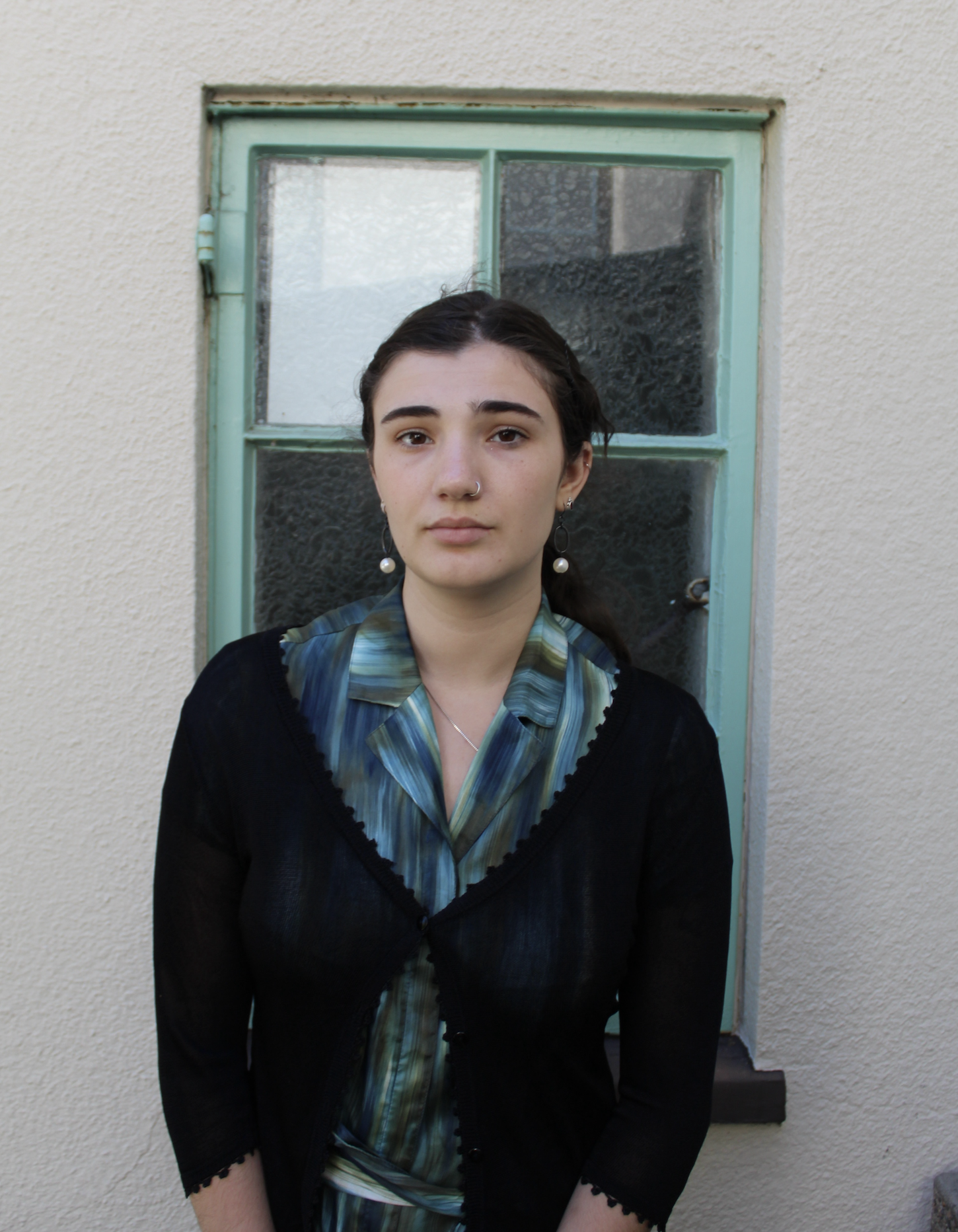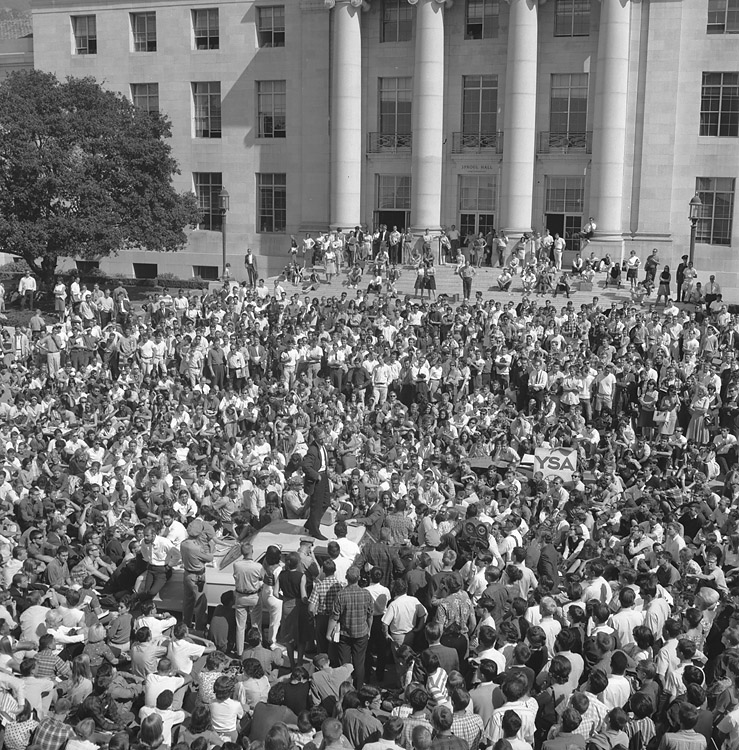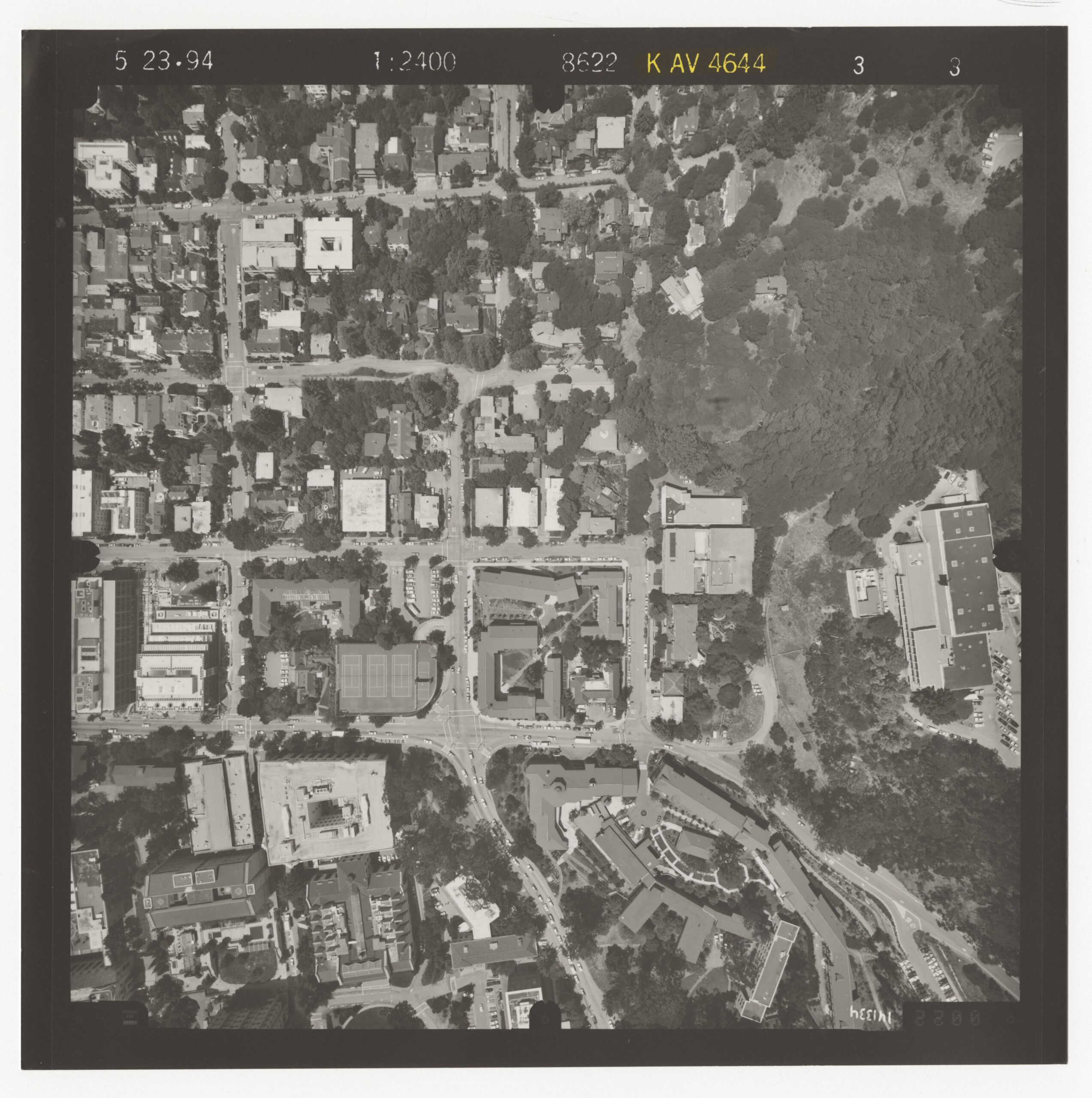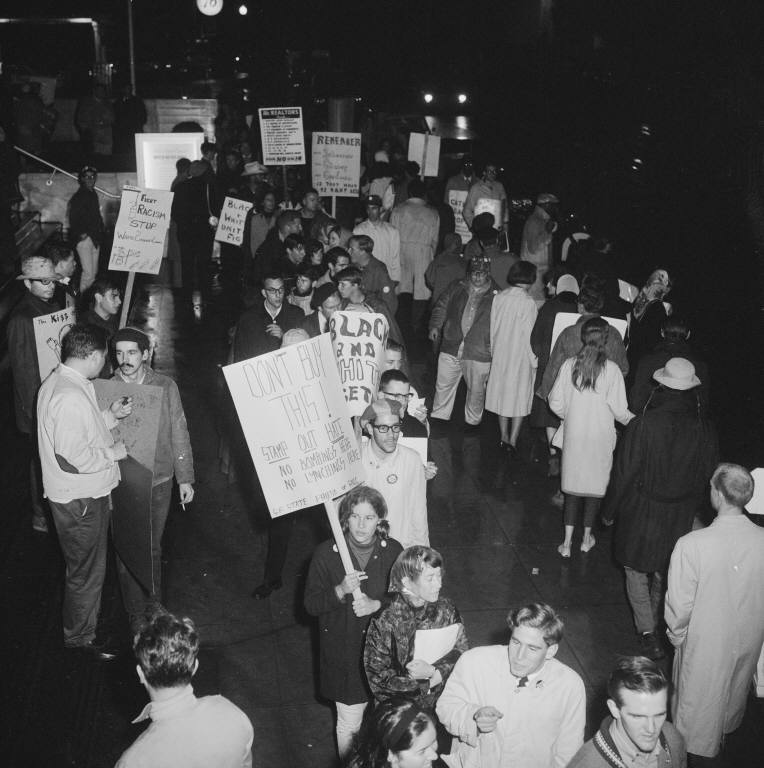By Natalie Naylor

Natalie Naylor is a fourth-year undergraduate studying English and Creative Writing. She’s lived in the on-campus dorms, specifically Unit 2, and two Berkeley Student Cooperative properties during her time at UC Berkeley.
Well, it was magnificent! First of all, it was beautiful. I mean, Berkeley in the sixties was just a great place to be. It was very exciting; there were all kinds of new ideas. I loved my classes; I quickly made very good friends.
– Julianne Morris, SLATE Project
Berkeley in the 1960s is a time our campus and its surrounding community look back on with pride. During these years, UC Berkeley students, faculty, and community members participated in civil rights protests, antiwar activism, and, of course, the Free Speech Movement; these efforts are no doubt some of the most significant moments in Berkeley’s history. From the Mario Savio Free Speech Movement Café to the Martin Luther King Jr. Building and Free Speech Monument in Upper Sproul Plaza, the built environment referencing social activism in the sixties incorporates physical tributes to this time throughout UC Berkeley’s contemporary campus.
Sixty years later, as the Fall 2024 semester begins, it’s easy to feel as though that time in our history is completely removed from the present. However, students in the 1960s were concerned with issues familiar to UC Berkeley’s current student body: housing, humanitarianism, belonging, freedom of speech, and community building. This includes many of the members involved in the campus political group SLATE in the late 1950s and early 1960s. The Oral History Center’s SLATE Oral History Project documents the experiences and budding political consciousnesses of some of the students involved in on-campus activism at UC Berkeley sixty years ago.

SLATE was a political party on UC Berkeley’s campus from 1958 to 1966 and, therefore, predated the Free Speech Movement. Its main goal: to present candidates for the Associated Students of the University of California (ASUC) office who supported racial equality and free speech on campus.
Jackie Goldberg, an undergraduate social science major in the mid-sixties, was one of the most well-known student activists involved in SLATE at UC Berkeley. She initially joined SLATE because of her passion for civil rights, as well as the strong community and support from other student activists on campus at the time. Her oral history is a part of the Oral History Center’s Free Speech Movement Oral History Project but chronicles the work she did with SLATE in detail.
When she arrived on campus, Goldberg underwent a year of dorm living—still a staple of the UC Berkeley freshman experience. After that first year in the dorms, she encountered a lack of housing on and around campus, which is a lasting issue at Cal. To secure housing for her second year, she participated in the sorority rush process and became a member of Delta Phi Epsilon. Goldberg claims that due to her Jewish background, most other houses declined to offer her membership. Experiencing this prejudice firsthand likely later influenced her activism in fighting discrimination in Greek life. In her oral history, she describes her housing journey as such:
I had applied to the co-op. I had applied to the dorms, and I didn’t get any of them. I was on the wait list for both. So my game plan was I would go in for a semester, try to grow up so I could get an apartment, find someone to get an apartment with…but it turned out that I was in this free-wheeling place, with a lot of nice people, some of whom are still my friends…and it was so easy. I didn’t have to cook, I didn’t have to clean, I didn’t have to shop, and it was cheap because I was doing the house bills.
Despite originally joining the sorority for housing reasons, Goldberg grew an affinity for the culture of her house and its lifestyle. In her oral history, she recalls: “I stayed all three years. I had no desire to leave.”
Goldberg thrived in community with other members of Delta Phi Epsilon and SLATE during her time at UC Berkeley. Her activist work and living situation occasionally overlapped, like while advocating for the racial integration of sororities at Cal. At the time, Greek life had a vast political presence on campus; Goldberg both embraced and challenged this precedent to incite political change at UC Berkeley. She succeeded in encouraging other sororities to desegregate, despite the decision sometimes diverging from their national organizations and sister-chapters.
Julianne Morris, another member of SLATE, had a less positive experience in an all-women’s housing arrangement around the University of California, Berkeley’s campus. While studying at UCLA, Morris founded the organization PLATFORM, inspired by conversations she’d had with members of SLATE. After craving more involvement in student politics, she transferred to UC Berkeley in the early 1960s and selected housing based on connections she’d previously made through SLATE. Morris recalls:
My first semester I was in a co-op, Stebbins Hall, and so I met a lot of women friends there. And of course, you know, it was very different then. There was a curfew, where you had to be in—and God forbid that there were any men there at night.
Even in the sixties, the University maintained in loco parentis authority over its female students from which it exempted male students. These unequal restrictions were especially apparent when it came to women’s housing accommodations. Because of this, although she found community both in SLATE and at Stebbins, Morris eventually sought more autonomy by moving to her own apartment after one semester in the co-op system. She explains:
Oh, I liked the idea of being freer. And you know, I hated having to come in at a certain time and no men in the house and the whole way things were at that time. And so I was very happy not to be in a dorm or a co-op anymore and be on my own.
Despite graduating sixty years ago, many of the buildings around UC Berkeley’s campus are part of a continuous built environment that would be physically recognizable to Morris and her peers.
In 2024, there are still two Berkeley co-ops designated for female-identifying students only, but no all-male-identifying cooperatives remain. One historically men-only house was Barrington Hall, which closed in 1989.

David Armor, a founding member of SLATE, lived in Barrington Hall while attending UC Berkeley, and participating in student government and campus activism. In 1959, he became the first and only member of SLATE to be elected as ASUC President. Armor describes his experience living at the student cooperative Barrington Hall during his freshman year as such:
Again, as a very poor student, I chose the cheapest housing, which was…a cooperative, Barrington Hall, terrible building, really not in good shape…there was a two-person bedroom, two two-person bedrooms, and then a one-person bedroom, so five people sharing a bathroom. And co-op means that you did the work…You work. You did the food, the serving, the cleaning, and everything, that’s how you paid, why the fees were so low. So you basically worked to provide all the services.
However, after a semester, Armor also decided to transition to an apartment. While making this change, he and his roommates integrated some of the cooperative practices they adopted from Barrington into their new living dynamic. Armor reports this influence as having a positive impact on his development as a young adult:
So we got an apartment in the second semester of my freshman year, and five roommates, and we divided up the chores, cooking and whatever, and that was a great experience, because we [were] becoming independent, and living on our own.
Armor’s desire for strong community and cooperation mirrors the effective practices of SLATE’s grassroots political advocacy approach. Housing was one of the main issues of SLATE’s political platform, and the group supported the Berkeley Fair Housing Ordinance in 1959. SLATE also opposed the University’s compulsory ROTC program for male freshmen and sophomores. Members defined SLATE by its beliefs in student organizations, advocacy, and the right for personal academic freedom on UC Berkeley’s campus and its surrounding areas. Communal living, even on an apartment scale, is still a method of community building for students at UC Berkeley. In addition, cooperative living situations are often regarded as financially accessible for a wide range of students looking for housing in Berkeley. Armor and other SLATE participants likely resonated with communal styles of living because of their political and personal beliefs, as well as their material needs.

Over the past sixty years, both Barrington Hall and the UC Berkeley chapter of the Delta Phi Epsilon sorority have closed; the physical structures where they were once housed are the largest reminders and evidence of their impact on campus. Stebbins Hall, Morris’s first housing experience at Cal, is still operational as a student cooperative, and has been co-ed since 1971. In short, the built environment since the time of the Free Speech Movement on Berkeley’s campus has both endured and been changed in ways that would feel substantial to former students and members of SLATE.
The activists highlighted here craved more autonomy and less censorship in both their campus and housing climates. They were able to socially campaign for their beliefs as a result of cross-community building practices. Goldberg, Morris, and Armor all lived in houses with a built-in social element; this was likely a great opportunity for idea-sharing and recruitment for SLATE’s cause, as well as a way to foster meaningful connections with their housemates. Their interviews reveal the importance and impact of these connections, as well as the places in which they were formed. What these narrators recall best from their time at UC Berkeley—outside of their work with SLATE—is not classes or grades, but instead the places they lived and the communities of people they built in those places. Indeed, Goldberg, Morris, and Armor’s individual memories of student-led activism and the communities that emerged from, and around, that work have remained strong sixty years on.
About the Oral History Center
The Oral History Center of The Bancroft Library preserves voices of people from all walks of life, with varying political perspectives, national origins, and ethnic backgrounds. We are committed to open access and our oral histories and interpretive materials are available online at no cost to scholars and the public. You can find our oral histories from the search feature on our home page. Search by name, keyword, and several other criteria. Sign up for our monthly newsletter featuring think pieces, new releases, podcasts, Q&As, and everything oral history. Access the most recent articles from our home page or go straight to our blog home.